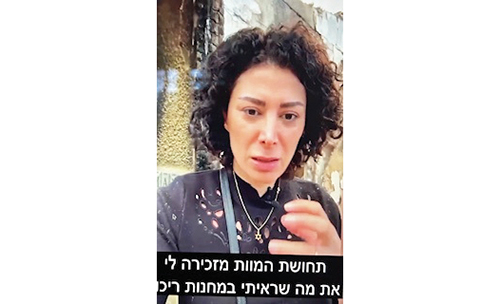
Almost 50% of all marriages in the United States will end in divorce or separation. The divorce rate in the Orthodox community is catching up, with about 30% of Jewish marriages ending in divorce.
Divorce is difficult for everyone—for the adults, and especially the children. Parents that can provide emotional and mental support for their children can shield them from unnecessary stress during this chaotic time. However, this is also a period of drastic uncertainty for the parents due to potential financial loss, change in family structure/family support, and having to renegotiate their work/life balance. The engagement in the legal system is also a significant stressor. Therefore, it is important to take care of your needs (i.e., emotional, mental, physical and spiritual) so that you can help your child(ren) navigate the uncertainty.
From a child’s perspective, the parents’ divorce represents a drastic shift in their world—a loss of family as they know it. Many children feel sad, angry and anxious, and have a hard time grasping how their lives will change. The child’s age at the time of the divorce also has an impact on how the child responds, and what he or she understands about the new family structure. The key is to help the child realize that although the marital relationship has changed, both parents are still committed to their children.
Here are a few tips on how to help your child through a divorce:
Talk to your child clearly and appropriately about the divorce and its implications. Plan what will be discussed.
Answer your children’s questions in a way that will support them emotionally, and remember to demonstrate respect of all parties involved. Try to understand why your children are asking certain questions, and address their concerns.
Tell the child that this is not their fault, and that their (good or bad) behavior has nothing to do with your (mutual) decision to get divorced.
Endeavor to practice cooperative co-parenting. Manage your emotions so that you do not create a situation of divided loyalties. This is the most destructive mental health experience for your child.
Reassure your child that divorce is between the parents, not between the parents and the children. The parents fell out of love with each other, but they are never going to fall out of love with their children.
Children thrive on routine, especially during times of turmoil. They will need to know the who, what, where and when. Help them know what is going to happen next, and work together to develop normal, predictable routines.
Try to spend quality time with your children. Encourage them to share their feelings of anger, sadness and fear. Not all children react right away, and some children will appear fine at home, but act out in school. Some may act perfect, and some may pick a fight with a friend. Be attentive and consult your child’s teachers, doctor or a therapist for guidance on how to handle specific problems you are concerned about.
Work with a parenting coordinator if there is difficulty in establishing mutually agreeable decisions regarding the children.
Ending a marriage is difficult when the decision is mutual, and even more so if domestic violence is involved. Domestic violence is not limited to physical abuse. It can take the form of social and financial controlling, intimidation or any kind of emotional abuse or aggressive behavior within the home.
Data suggests that 25-40% of divorces are initiated because of domestic abuse. Leaving an abusive relationship can be overwhelming, especially when children are involved. Some survivors say that leaving their abusers was one of the hardest things they ever did. But please know this—you are not alone. We can help.
Project S.A.R.A.H. (Stop Abusive Relationships At Home) is a program that support and helps victims of domestic violence and sexual abuse. We work to overcome cultural, legal and religious barriers confronting the victims and their families. Our highly trained staff provides low-cost treatment and therapy that enables victims to process the often unspeakable traumas, and connect them with a broad array of services. While we proudly serve the statewide New Jersey Jewish community, no one is turned away due to race, gender or financial difficulties.
Project S.A.R.A.H. serves as a link between victims of abuse in the Jewish community and the support systems and resources available to them. We work closely with rabbis, rebbetzins, kallah teachers, mikvah attendants, camp directors, school administrators, parents and the general public to promote the safety of our community. Project S.A.R.A.H. creates a more safe world through its prevention programs.
For more information, or to schedule an appointment, please contact Project S.A.R.A.H. at 973-777-7638 x154 or [email protected].
Ruthie Bashan, MA-AT, art therapist and certified parent educator, specializes in working with children with ADHD and sensory issues and is part of the Project S.A.R.A.H. team.













